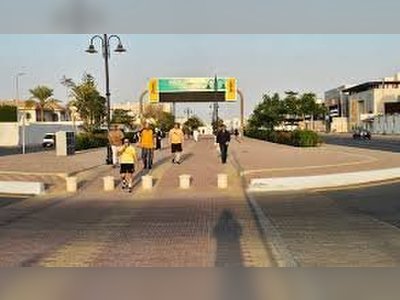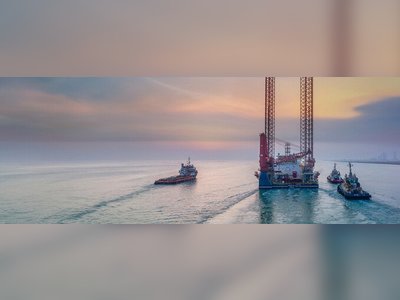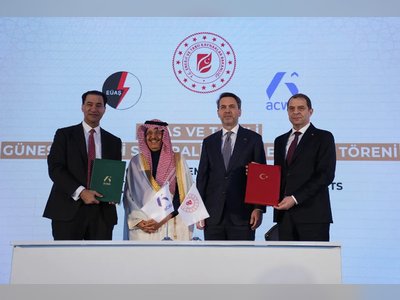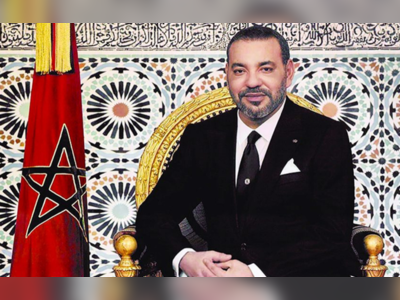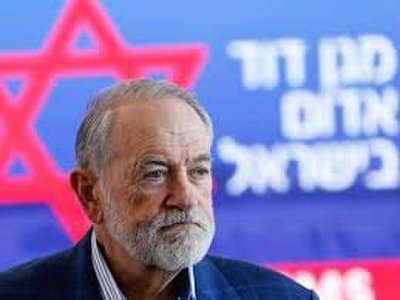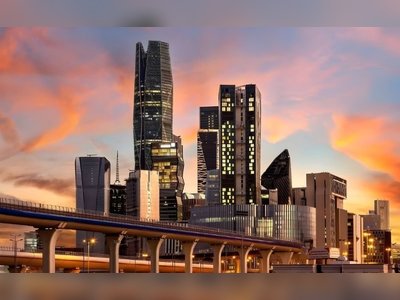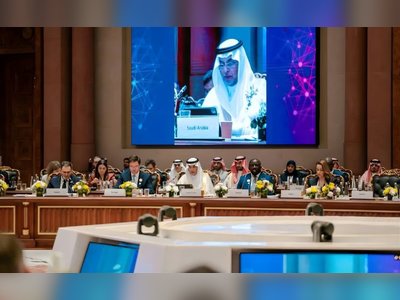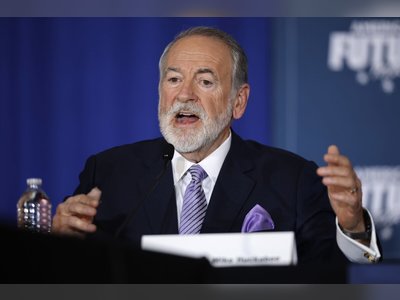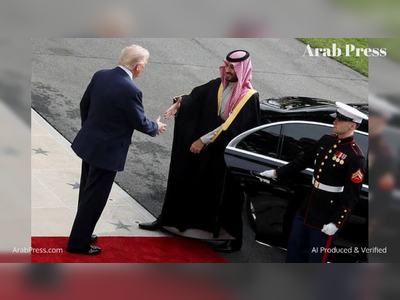
Palestinian refugee camps are a tinderbox for civil war
“The violence exists because the Palestinians are living in an unbearable environment in Lebanon,” says Mohammed Khatib from Ain Al-Hilweh refugee camp. He was commenting on the tensions and deteriorating living conditions Palestinians are facing in Lebanon, which seems to be slowly disintegrating into an armed conflict between rival factions in the camps which could drag the refugees, and potentially even the entire country, into civil war.
Lebanon has been in economic freefall since 2019, with an ever plummeting currency crisis and a poverty rate hitting 82%. The Palestinian refugee population have lived on pretty much unnoticed by international media, despite their living conditions being amongst the worst in the country. But the living conditions are just the tip of the iceberg. In the past week an explosion, followed by a mass shooting have taken rival the Palestinian political parties, Hamas and Fatah, to the point of open warfare.
Last Friday an explosion rocked Burj al-Shamli refugee camp, leading to a sea of contradictory accusations about what had truly transpired. Initial reports by the likes of Saudi Arabia’s Al-Arabiya claimed that scores of deaths had taken place after an explosion at a Hamas munitions storage facility, whilst Hamas alleged oxygen cylinders had been ignited due to a technical error. The scores of dead stories, reported by some media outlets, turned out to be untrue, however one member of Hamas, named Hamza Shaheen, was killed in the explosion.
During Hamza Shaheen’s funeral, a very different tragedy unfolded this Sunday as armed gunmen opened fire indiscriminately into a crowd of thousands of mourners in the camp. Four were declared dead on site and 6 injured. According to two separate sources inside the camp, who spoke on the condition of anonymity, leading members of Hamas and Hezbollah were present at the funeral when the shooting took place and the gunmen were identified as “agents” belonging to the Fatah Party. Fatah, which commands what is known as the Palestinian Authority out of the Israeli-occupied West Bank, is the political rival of Hamas.
An eyewitness, who did not wish to be identified, stated that “the mourners marched towards the cemetery” and as they did “armed and clearly identifiable gunmen from Hamas were present.” The eyewitness said not a single shot was fired from the Hamas members and that when the shooting started by the Fatah gunmen, “the resistance forces [Hamas] did not fire back at them.” Fatah officially denies it instigated the massacre and accuses Hamas gunmen of shooting in the air first, a claim which eyewitnesses and videos from the scene do not depict.
One of those injured in the shooting was a top member of the Hamas politburo, Zaher Jabareen. This incident could still lead to retaliatory violence from Hamas, as the group has openly accused members of the Palestinian Authority’s National Security Forces of carrying out the shooting. Allegations have also been made that the two incidents which took place inside the camp could have been orchestrated by the Palestinian Authority (PA), based in Ramallah, as the PA faces a crisis of its own and fears it could suffer a popular rebellion in the West Bank.
But the added element to this chaos has been the influence of notorious warlord Samir Geagea, who leads the ‘Lebanese Forces’ militia group. Geagea first jumped on Friday’s explosion as an excuse to urge the Lebanese army to disarm the refugee camp and probe the incident and it is feared that if further conflict between Hamas and Fatah emerges in the camps, he will use his militiamen to engage the Palestinian groups. This is an especially threatening prospect, after Lebanese Forces opened fire from rooftops against protesters belonging to the Shia political parties Hezbollah and Amal, killing seven, back in October.
Why Are Palestinian Refugee Camps in Lebanon A New Hotspot For Violence?
Most Palestinian refugees in Lebanon live in 12 overcrowded camps, on which the United Nations Relief and Works Agency (UNRWA) recently sounded the alarm, due to deteriorating living conditions. Roughly 207,000 Palestinians are registered as refugees in Lebanon. The ever growing community has lived in the country since 1947, when Zionist militias drove them from their homes in historic Palestine and has since barred them from returning.
Mohammed Khatib, a Palestinian refugee from Lebanon who is currently part of the Palestinian Movement known as ‘Masar Badil’, says that “The number one primary problem facing Ain al-Hilweh camp [Mohammed’s camp] and other camps in Lebanon as well is that we have been refugees in this country since 1948 and that we cannot go back to our country.” He labeled “the second primary problem that the Palestinians face is that we are under a sectarian, racist, Lebanese regime which accounts everything on the basis of sect and ethnicity.”
Asked about what life is like in the camp he grew up in, Mohammed answered: “Obviously we can see that Ain al-Hilweh camp is an overpopulated place, we are talking about 1 kilometer squared, more or less, where you have around 100,000 people living there. Also it is important to know that the majority of the people in the camps, they are Palestinians from Lebanon, but also in the last 10 years there are many from the Palestinian refugee community in Syria that have been displaced and they are taking refuge in the Ain al-Hilweh camp. Not just this, but there is also an impoverished Lebanese community that lives inside the camp which endure almost the same conditions that the Palestinians suffer.”
“Ain al-Hilweh is a besieged camp, by the Lebanese army and government, and the people here are deprived of their basic human rights.” Mohammed says that “there are checkpoints at every entrance and exit to the camp. Also in the past 10 years the Lebanese army have built an Apartheid wall, let’s say, which is surrounding the camp and this is a huge issue generating many problems.”
Asked on how the current Lebanese crisis has hit Palestinian communities, he answered “the economic crisis in Lebanon, that the entire country is facing… combined with the lack of gasoline, the problems with the currency and other issues associated with the crisis are making Palestinian refugees’ lives worse. But it’s important to note that the Palestinians in Lebanon have been suffering since the moment they arrived in Lebanon. The problems with the electricity, diesel, lack of materials entering the camps, and exiting them, have always been very difficult.”
“Palestinians have not had the right to even work in Lebanon and so we are a community that perhaps knows best how to survive with this sort of crisis,” adding that, although things have gotten worse, “there feels like there’s nothing special about it,” due to the conditions that the refugee camps have dealt with for many years now.
A lot is said about the crime in Palestinian refugee camps, along with factional rivalries which threaten the livelihoods of the refugees. According to Mohammed: “When you are deprived of your rights, when you are besieged by the Lebanese army, when you have no right to resist or go back to your country, when you are deprived of the right to work and of owning property, of course this will generate problems. When you live under poverty, this will generate violence, but I believe that the lack of leadership and the lack of the PLO [Palestine Liberation Organization] helps create this problem and makes us disorganized. This only leads to conflict, including social problems, personal problems and political problems.”
Since the PLO was forced from Lebanon by the Israeli military in 1982, having based their operations out of the country since the early 1970s, the following period was terrible and caused a feeling of abandonment. Between 1982 and the signing of the Oslo Accords, in 1993, Mohammed said that the “Arab reactionary regimes, like Saudi Arabia, funded extremist radical Islamist groups.”
“Those groups are not gangs,” he added, “they are political Islamist groups which received funding since the early ‘90s by the likes of Saudi Arabia and other regimes, or are controlled by intelligence agencies,” which Mohammed believes to be the root cause of many violent conflicts.
Mohammed also explained that due to this violence, Lebanon’s right wing groups point to the camps as “no go zones” where the government should be authorized to raid to cleanse the area of weapons. Another Palestinian refugee, who wished to remain anonymous and lives in Burj Al-Shamali Camp, says that “we are discriminated against as criminals and we are seen by some of the Lebanese as a problem for them and so they want to have us removed and silenced,” he went on to say that “we are always used as the scapegoat by those Lebanese that take their anger out on us, but look at how our people live, what life is this for a human being, our conditions have looked like Gaza in times when Lebanon was a tourist destination.”
Another man called Ahmed from Beddawi refugee camp, where it is reported that amphetamines are cheaper than food, revealed the living conditions during the economic crisis had become substantially worse. “It's always been bad and now it's even worse,” he said, “food is little, fuel is hard to get, there is no work, our people get almost no electricity in the camps and we have no money.”
Mohammed Khatib, who describes the conditions faced in the Palestinian refugee camps as “besiegement,” feels that due to the absence of any unified Palestinian representative force in the camps, an increase in violence is possible. The refugee issue has long been ignored, as the majority of the violence in the context of the Palestine-Israeli conflict is no longer affecting those living in the camps. However, if this crisis in Lebanon’s camps is not resolved soon, it is likely that out of the overcrowding and the poverty, a new wave of violent conflicts will emerge, dragging not only rival Palestinian factions into a dehabilitating war but perhaps the entire country of Lebanon.


